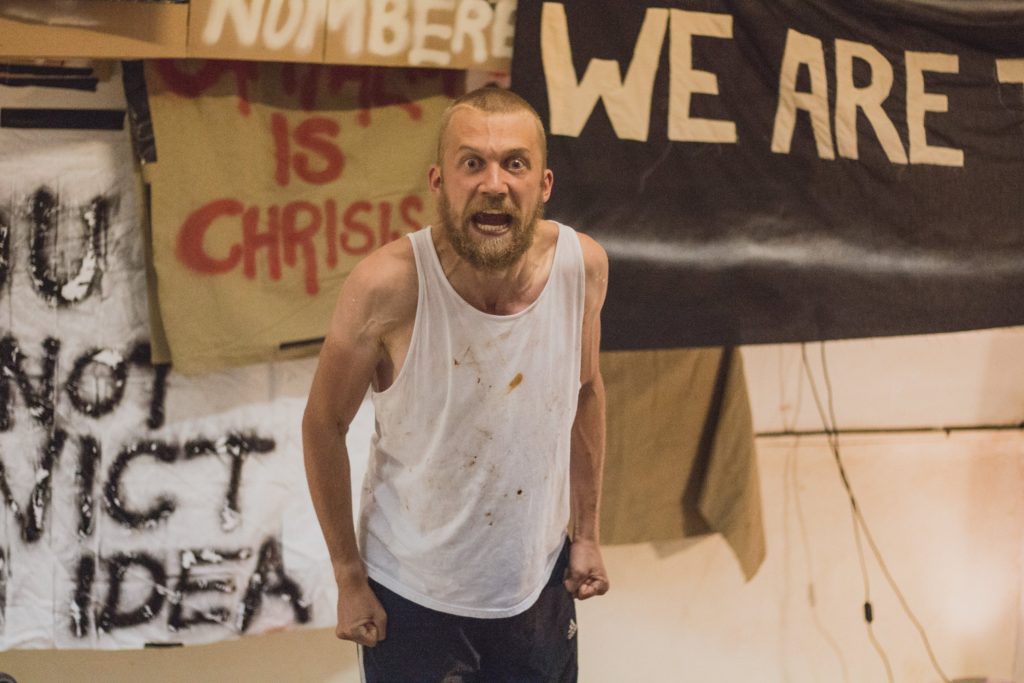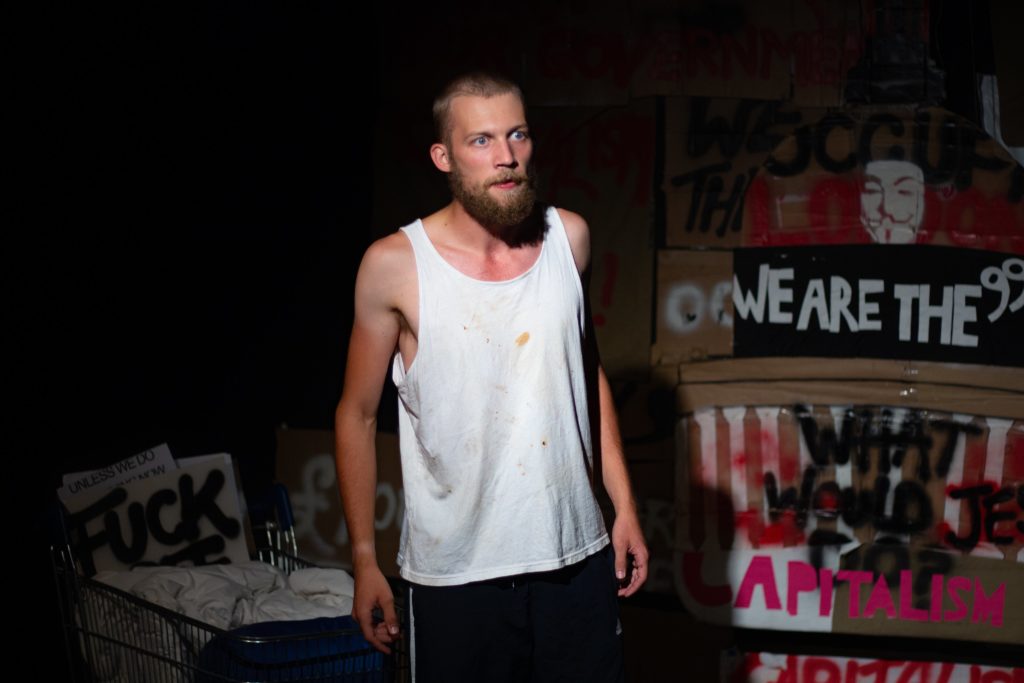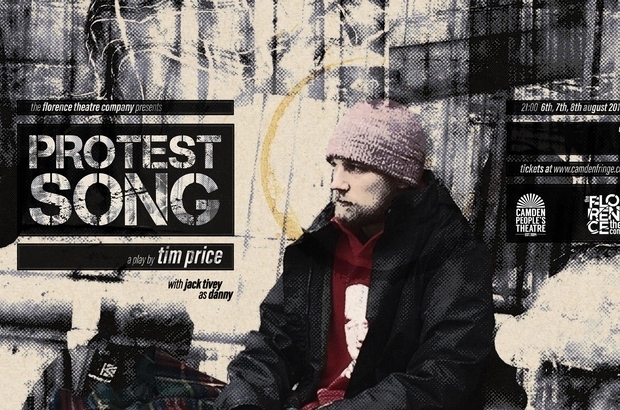DANIEL LUBIN reviews the Florence Theatre Company’s Protest Song.
In the UK, the number of rough sleepers in 2017 alone rose by 15%, according to government statistics. The same stats also show that nearly a quarter of all rough sleepers in the UK reside in London. In this context, Tim Price’s Protest Song not only addresses a social issue that is progressively getting worse, but also hits close to home for its London audience. The one-man show brings to the stage a problem that most people have conditioned themselves to ignore, normalising extreme poverty and demeaning a vulnerable population; it forces its audience to challenge these self-imposed assumptions.
Danny (Jack Tivey) sleeps rough on the steps of St Paul’s Cathedral, until suddenly the square is packed with Occupy activists tenting up alongside the homeless community. Through the play, Danny falls in and out of love with the movement, finding a voice through the art of activism, and a sense of affinity in the 99%.

One-person plays are both a staple of fringe theatre and incredibly difficult to pull off. It is a huge credit to Tivey that he could meet this challenge, keeping the audience visibly and audibly engaged throughout. Price creates a character who is simultaneously charming and shocking, sympathetic and kind while jarring with arguably offensive rhetoric and often taking out his violent temper on unassuming audience members. Danny is difficult to wholeheartedly support at all times, yet easy to empathise with. He is totally and believably human.
The play’s immersive moments range from Danny asking audience members for money, to rallying a chant of ‘Boris is a cunt’, producing an essential interplay between character and audience. As ever, playfulness is the key to audience participation, and Tivey capitalises on the quintessential British awkwardness. Here though, the device goes further; Protest Song makes a point of aligning the discomfort of being accosted by an actor with that of being approached by a homeless person. This goes beyond mere embarrassment when Danny later screams at audience individuals. Violently and mercilessly breaking the barrier between audience and performer in this way forces the reality of the homelessness issue on us, and refuses to let it remain neglected.

One instance of this mirrors one of the most interesting aspects of the plot. As Danny’s exposition of societal attitudes towards the homeless population undercuts the friendship he has cultivated with the audience, holding an ugly mirror to our prejudice, so Danny’s relationship with the Occupy residents falls apart. The relationship Danny develops with the protestors and the affinity they form is sharply subverted when the group forsakes him, a pointed hypocrisy from those supposedly standing for those on the wrong end of our society’s socioeconomic inequality. The difference between those who have to sleep rough, and those who have the privilege to choose to, becomes starkly clear.
The complex characterisation of Danny is core to the play’s reaction against the frequent dehumanisation of the homeless population. Protest Song is exceptionally well-written and well-informed, capturing the perfect balance of humour, drama and tenderness to make an audience think about an issue and a community we have convinced ourselves to ignore. The show has only just completed its second run and I hope it transfers again. It should.
Protest Song played at the Camden People’s Theatre from 6th-8th August. Find more information here.
Featured image courtesy of James Cassir.





